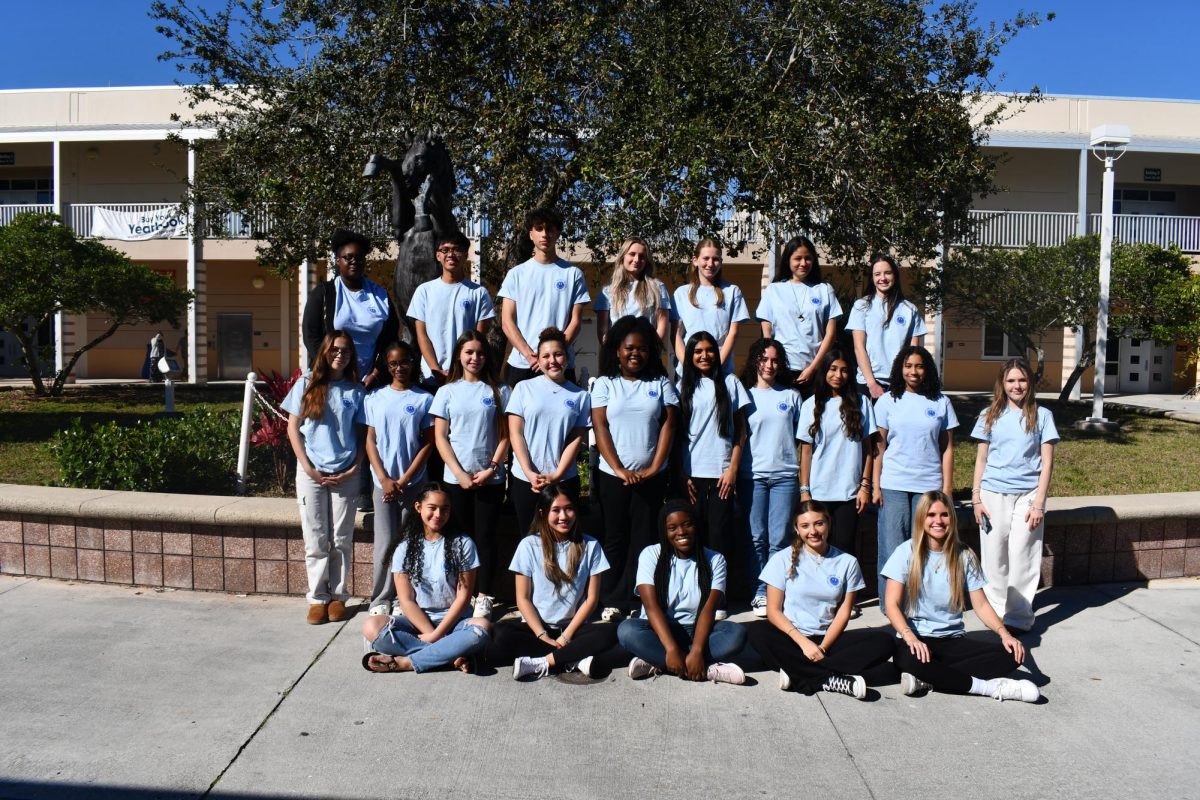To pray or not to pray: Minute of silence, among other legislation, gives students opportunity to reflect on their decisions
September 27, 2021
Between exams, extracurriculars, and everything that goes on at home, school can be an overwhelming environment. New legislation is attempting to help students take control of their time and decisions in the classroom; however, not without leaving some wondering why now?
This past June, Governor Ron DeSantis approved House Bill 529 which requires teachers to set aside a moment of silence for students to reflect. According to the bill, teachers are not allowed to comment on the nature of the reflection. Students are also encouraged to speak with their parents to determine the best use of this time.
The bill, primarily sponsored by Representative Randy Fine (R-53), was first filed in January of this year. It fared well in the House, gaining bipartisan support and easily passing to the Governor.
“Every family in our state should be able to send their children to school and know that they will be protected from harm and be able to practice their faith,” said DeSantis.
HB 529 is an expansion of Florida statute 1003.45, signed by then-Governor Rick Scott in 2011, which states, “The district school board may provide that a brief period, not to exceed 2 minutes, for the purpose of silent prayer or meditation be set aside at the start of each school day.”
Before HB 529, the existing Florida statute simply encouraged this moment of silence, instead of requiring it.
“While I believe the moment of silence is important to some students, I feel as if it is not as important to others,” said senior Arunima Deogade. “Since it’s only a minute, I just think about other things I have to do that day.”
As for the bill’s purpose, in an interview by the Space Coast Daily, Rep. Fine (R-53) has stated, “I believe it is no coincidence that our children are having these struggles at the same time that the average American’s connection to God has declined. Whatever your religion, recognizing our place in society and the omnificence of the Almighty helps bring balance and internal peace.”
Moments of silence are not a new idea in schools. In 1985, an Alabama statute that authorized a minute of silence for “mediation or voluntary prayer” was declared unconstitutional because of the way it endorsed religion in public schools. However, in 1997, the case Brown v. Gwinnett, decided that moments of silence in school were constitutional as long as they did not intertwine government and religion.
“I’m concerned of what the outcome was versus what in my mind the intention was,” expressed Representative Matt Willhite (D-86). “Sometimes everybody needs to take a step back and take a breather, but the bill’s sponsor has stated that he believes it should be for two minutes of prayer in school. We should have a separation of church and state, and with that comment of prayer that he is suggesting, that is not separation in my mind.”
These two cases show that moment of silence mandates are constitutional as long as they establish neutral intent. This is because of the Establishment clause in the Bill of Rights that states “Congress shall make no law respecting an establishment of religion.” This is often interpreted as the separation of church and state. Since HB 529 utilizes neutral language, it is not seen as a violation of this clause.
“I don’t think the moment of silence is important to most students,” said senior Christina Pappachan. “It’s often something that is ignored or seen as pointless in class.”
At Central, this brief period of reflection is employed at the beginning of third period, during the announcements. Whatever students choose to do with this moment varies.
“I personally use the moment of silence just as it was a normal class,” said Pappachan. “However, I sometimes say a quick prayer.”
Some have even expressed their doubt of the importance of this bill as schools continue to face overcrowding and underfunding.
“I bet you a lot of these kids would rather have two more minutes in the lunch line to get their lunch and eat it then to sit at a desk and either pray or just sit there quietly,” said Rep. Willhite (D – 86).
In addition to HB 529, there are several other opportunities for students to take advantage of. One is the Hope Scholarship which allows any K-12 students who have been the victim of bullying, harassment, or assault to transfer public schools or enroll in a private school.
Established in 2018, the scholarship is administered by the non-profit organization Step Up for Students, which receives its funding from auto vehicle purchases and private donations. This year, the scholarship has been expanded to include COVID related issues, particularly pertaining to those who disagree with mask mandates.
According to Matthew Mears, general counsel for the Florida Board of Education, the rule defines COVID harassment as “any threatening, discriminatory, insulting or dehumanizing verbal, written or physical conduct that the student suffers in relation to or as a result of school-district protocols for COVID-19 — including face covering, the separation of students and COVID-19 testing requirements.”
If a student has been the victim of harassment, it is up to the principal to create a written report of the incident which then prompts an official investigation. There are several different tiers of funding based on grade level to the Hope Scholarship, but eligible students can receive up to $7,100 for their education.
From its establishment in 2018 to February of 2020, Step Up for Students has cited that about 371 students have earned the Hope Scholarship.
Another new piece of legislation is HB 233, signed by the Governor this past June. Not only does the bill require the Board of Education to track viewpoint diversity in universities, but it also allows students to record their professors.
The bill states, “a student may record video or audio of class lectures for their own personal educational use, in connection with a complaint to the public institution of higher education where the recording was made, or as evidence in, or in preparation for, a criminal or civil proceeding.” Students may only post their recordings with their professor’s consent.
HB 233 has consequently caused quite the stir for both Democrats and Republicans. Democrats have expressed their concerns with the way students can use their recordings to victimize professors with left-leaning views, but Republicans have rejoiced at the way the bill allows for transparency between taxpayers and institutions.
Clearly, 2021 has been quite the busy year for education legislation and Florida is showing no signs of slowing down.
To learn more, please visit:
https://www.flsenate.gov/Session/Bill/2021/529
https://www.flsenate.gov/Session/Bill/2021/233
https://www.fldoe.org/schools/school-choice/k-12-scholarship-programs/hope/




Daniel Botero • Oct 6, 2021 at 12:19 pm
This story was absolutely phenomenal! I am so proud of you all as well, because this issue came out amazing. Great job! (We miss you Ms. B!)